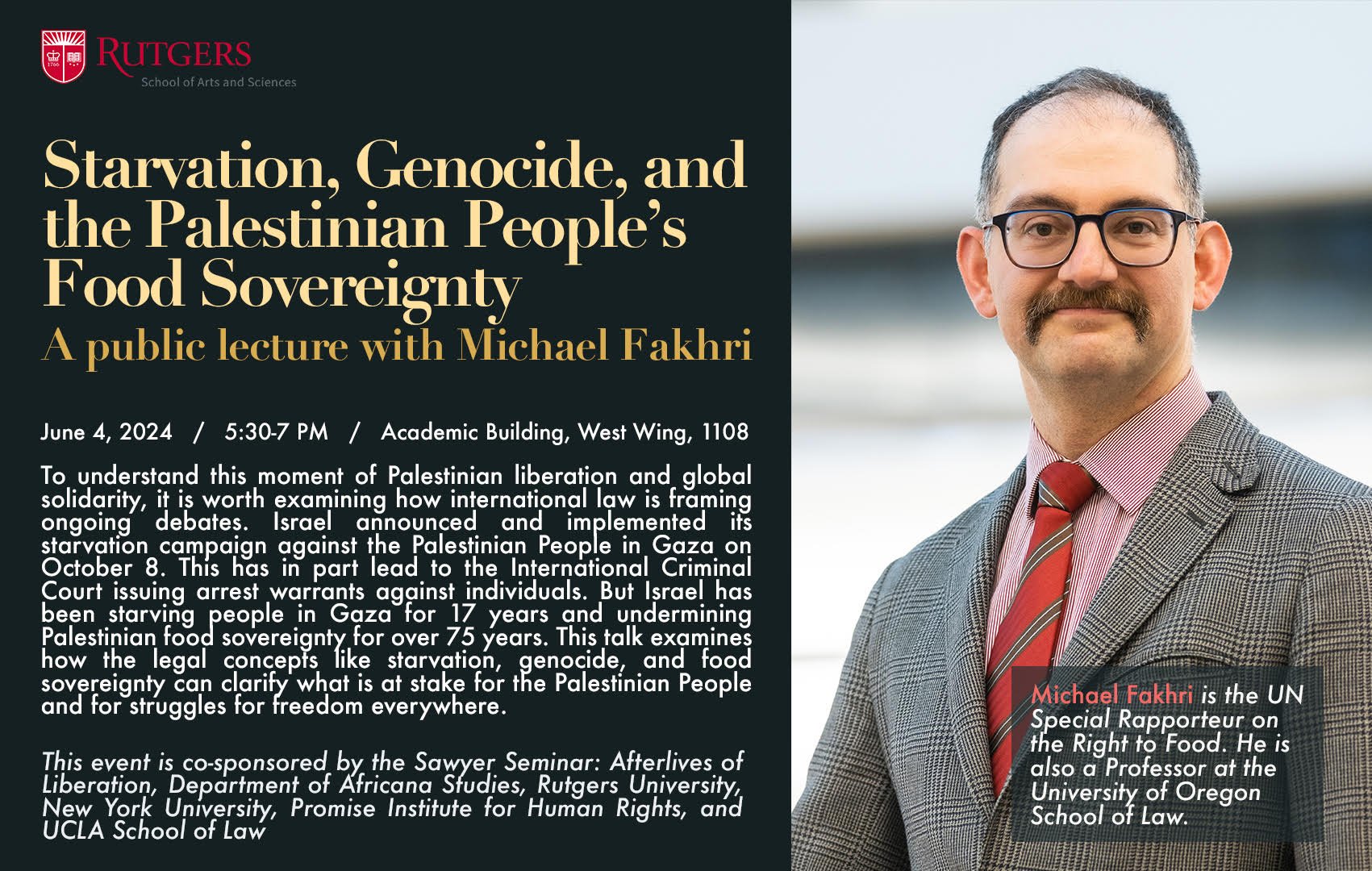To understand this moment of Palestinian liberation and global solidarity, it is worth examining how international law is framing ongoing debates. Israel announced and implemented its starvation campaign against the Palestinian People in Gaza on October 8. This has in part lead to the International Criminal Court issuing arrest warrants against individuals. But Israel has been starving people in Gaza for 17 years and undermining Palestinian food sovereignty for over 75 years. This talk examines how legal concepts like starvation, genocide, and food sovereignty can clarify what is at stake for the Palestinian people and for struggles for freedome everywhere.
Most recently, Professor Fakhri led an effort along with several other UN Special Rapporteurs and Independent Experts declaring that famine had spread throughout the Gaza Strip. The statement, issued on July 9, 2024, states that “When the first child dies from malnutrition and dehydration, it becomes irrefutable that famine has taken hold.” The independent experts recognize famine in Gaza as a form of genocidal violence against the Palestinian people and conclude by calling upon "the international community to prioritise the delivery of humanitarian aid by land by any means necessary, end Israel’s siege, and establish a ceasefire.”
This lecture delivered in early June reflects some of that analysis and indicates what is to come in the Special Rapporteur’s forthcoming report to the Human Rights Council this Fall.
This event is co-sponsored by the Sawyer Seminar: Afterlives of Liberation, Department of Africana Studies, Rutgers University, New York University, Promise Institute for Human Rights, and UCLA School of Law.

Featuring
Michael Fakhri is the UN Special Rapporteur on the Right to Food. He is also a Professor at the University of Oregon School of Law. Mr. Fakhri is a professor at the University of Oregon School of Law where he teaches courses on human rights, food law, development, and commercial law. He is also the director of the Food Resiliency Project in the Environmental and Natural Resources Law Center. His books include, Sugar and the Making of International Trade Law (Cambridge UP, 2014) and a co-edited volume, Bandung, Global History, and International Law (co-edited with Vasuki Nesiah and Luis Eslava) was cited by the International Court of Justice.
He has taught courses on the right to food at Harvard Law School, European University Institute, and the University of Arizona Indigenous Governance Program. He has delivered lectures on international human rights and development topics at universities in places such as South Africa, Egypt, Lebanon, Qatar, Singapore, Italy, Switzerland, Iceland, the United States, and the United Kingdom. He has also led public dialogues on human rights and development with peasant organizations, labor unions, and human rights activists in the Arab region and North America, and at international organizations such as the WTO Ministerial Conference.